How to Unblock Facebook in Russia in 2025: Avoid the Russian Ban
A VPN is the best way to bypass Russian geoblocks and access Facebook. In this guide, we'll show how to unblock Facebook in Russia using a VPN, as well as what to look for in a VPN and how to set it up. You'll also learn our top three VPNs for Facebook in Russia.
In February 2022, Russia launched a full-scale military offensive against Ukraine. In a bid to control the narrative about the war, the Kremlin began to target social media platforms, and on March 21, 2022, it banned Facebook. As a consequence, millions of users of this social media platform have been left wondering how to unblock Facebook in Russia.
The Facebook ban is part of the Russian government’s clampdown on social media and news platforms. So far, the likes of Instagram, Google News and Twitter have been blocked or severely restricted in ongoing efforts to limit Internet freedom.
In March 2024, the Russian government banned VPN advertisements, just ahead of the country’s presidential elections. The VPN advertisement ban does not extend to state-approved VPNs which could pose severe security risks as they are likely to share users’ data with the government. This is very alarming, since the government already collects citizens’ online data and many people have been arrested for anti-war opinions posted online as a result.
All is not lost, however, as you can get around the Facebook ban by using a VPN. If you reside in Russia, you don’t have to stay off the grid; our cybersecurity experts have compiled a step-by-step guide on getting Facebook unblocked in Russia. We also have helpful guides on how to unblock Twitter and bypass the Instagram ban in Russia.
A strong and secure VPN protects your Internet freedom and autonomy — it helps you safely bypass Russian geoblocks and enjoy Facebook, whether you want to get in touch with friends and family or have access to news and media outlets outside of the Kremlin’s control.
But not just any VPN will do — some of the VPNs we tested failed to bypass the Facebook ban, while others were approved by the government and are likely to pose a threat to your online privacy. This is why we strongly encourage you to opt for the VPNs we tested in Russia.
In this post, we’ll provide a step-by-step guide to get you started, and we’ll also reveal our tried-and-tested VPNs for unblocking Facebook in Russia, of which NordVPN is our top choice. Let’s dig in.
In 2022 Russia blocked access to most VPN websites, and in 2024 it began ordering Apple to delist several VPNs from its app store, including NordVPN and Proton VPN. It is crucial to install your chosen VPN before entering Russia.
-
10/01/2024
We updated the article with new VPN rankings to reflect the latest changes in VPN performance per our newest test results.
-
01/26/2025 Facts checked
We updated the section on the best free option with PrivadoVPN as the prime choice.
How to Use Facebook in Russia With a VPN
Setting up a VPN is easy, as we’ll show you in the steps below. For this example, we’ll use NordVPN because it is among the few VPNs that still work in Russia. It comes with superior security features which makes it the best VPN for unblocking Facebook in Russia. However, you can follow similar steps to set up other VPNs as well. Keep scrolling to discover other great VPNs we recommend for bypassing the Russian Facebook ban.
Here’s how to unblock Facebook in Russia:
- Sign Up for and Download NordVPN
Browse to nordvpn.com and grab a 76% discounted plan. You can claim a refund within 30 days so trying it out is risk-free. Choose a plan and a payment method and enter your billing details. Next, download and install the VPN on your device.
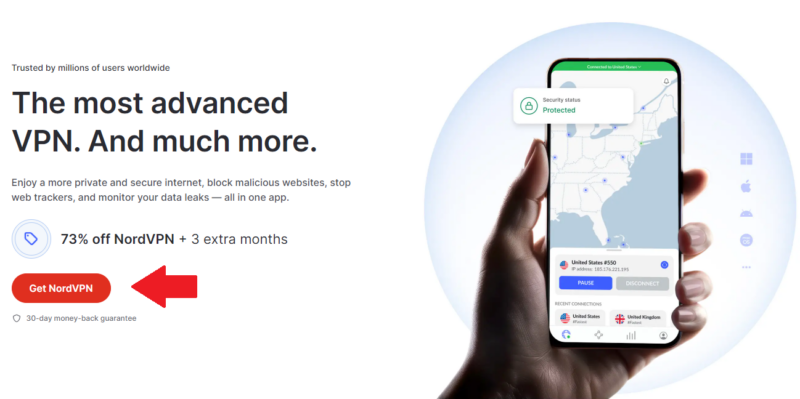
- Choose a Server Location
Next, open your VPN and select a server in a nearby country.
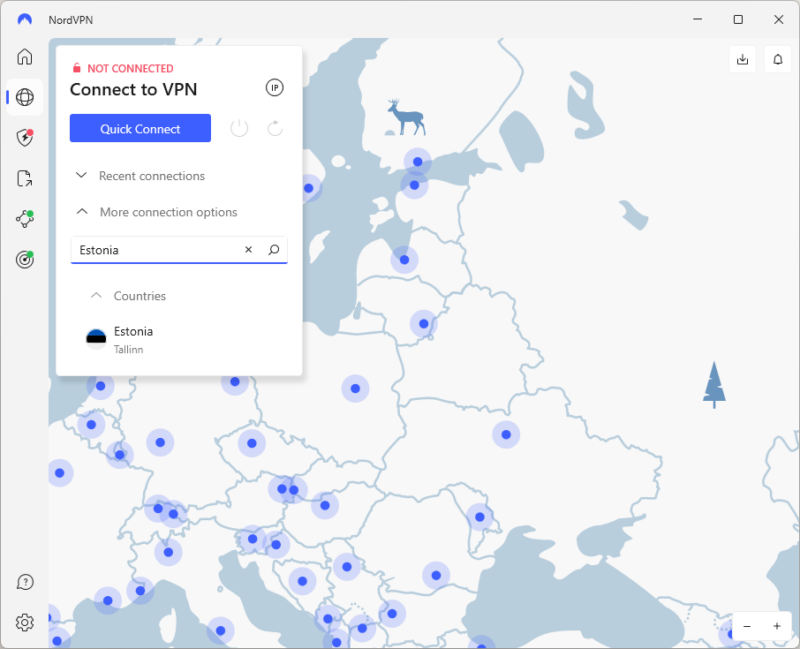
- Open and Start Using Facebook
Finally, you can sign in and access your Facebook without restrictions or surveillance.

What Is the Best VPN to Unblock Facebook in Russia?
To unblock Facebook, you need a VPN provider with strong security and encryption features to avoid Russian censorship and geoblocks. Also, the VPN doesn’t need to have physical servers in Russia, but it does need at least one in a neighboring country. You can find out more in our best VPN for Russia guide.
1. NordVPN — Best Facebook VPN for Russia
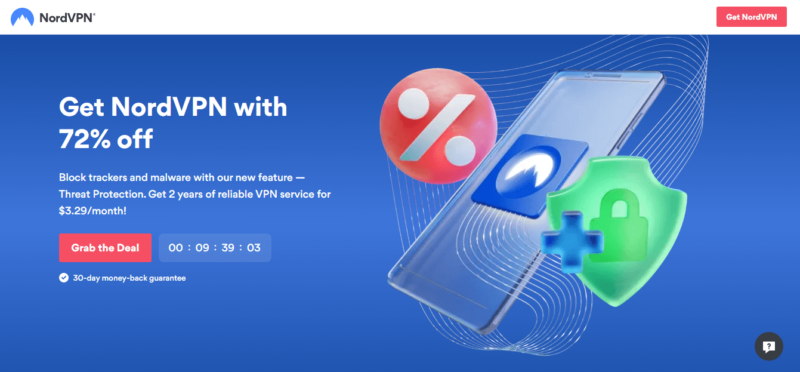
malware and ads while using Facebook in Russia.

Very Fast

Very Fast

Very Fast
NordVPN is a top-of-the-line VPN and the best service for unblocking social media in Russia. Even though NordVPN has servers in only 60 countries, quite a few of those servers are in countries bordering Russia, such as Latvia, Ukraine, Estonia and Moldova, which makes it great at bypassing geoblocks.
We recommend NordVPN to journalists and anyone at risk politically because of its double VPN feature, which routes your traffic through two servers instead of one. Further, its new threat protection feature helps you ward off malware and ads while using Facebook. You also get an automatic kill switch and DNS leak protection to ensure your data never leaks.
Learn more about the service in our NordVPN review or use its 30-day money-back guarantee to try it out.
- **VAT may apply
- Unlimited GB
- 10
- Yes
- *The prices are charged in the first billing cycle only. Renewal prices vary.
- Unlimited GB
- 10
- Yes
- *The prices are shown only apply for the first 12 months.
- Unlimited GB
- 10
- Yes
- **The prices are applicable only for the first 24 months. Secure, high-speed VPN Threat Protection Pro™: Anti-malware and advanced browsing protection Threat Protection Pro™: Ad and tracker blocker Password manager with Data Breach Scanner 1 TB of encrypted cloud storage Identity and SSN monitoring and alerts Credit monitoring services Up to $1M in identity theft insurance Up to $100K in cyber extortion insurance
- 10
2. Surfshark — Cheap Russian Facebook VPN With Unlimited Connections
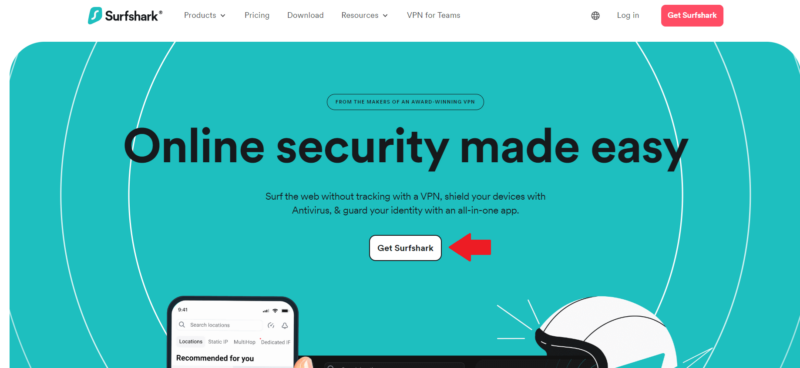

Very Fast

Very Fast

Very Fast
Surfshark is another VPN we trust to protect sensitive information in Russia, but it’s also great for those simply trying to go about their lives. Easy to use, highly secure and virtually leak-proof, Surfshark also allows infinite connections on one subscription, so you can share its unblocking power around.
We have seen some evidence that Surfshark’s website saves the IP addresses of visitors, but that behavior is nowhere to be found in the app itself. Check out our Surfshark review to learn more, or take it for a test voyage with a 30-day money-back guarantee.
- Unlimited GB bandwidth, Unlimited devices, Secure VPN, Ad blocker, Cookie pop-up blocker. Pricing for the annual and biennial plans only apply for the first payment. Renewal fees vary.
- Unlimited GB
- Unlimited
- Yes
- Everything in Starter, plus Antivirus protection, Identity protection, Email Breach and Credit Card Alerts, Online Alias Pricing for the annual and biennial plans only apply for the first payment. Renewal fees vary.
- Unlimited GB
- Unlimited
- Everything in One, plus Data removal Pricing for the annual and biennial plans only apply for the first payment. Renewal fees vary.
- Unlimited GB
- Unlimited
3. ExpressVPN — Beginner-Friendly VPN for Russian Facebook
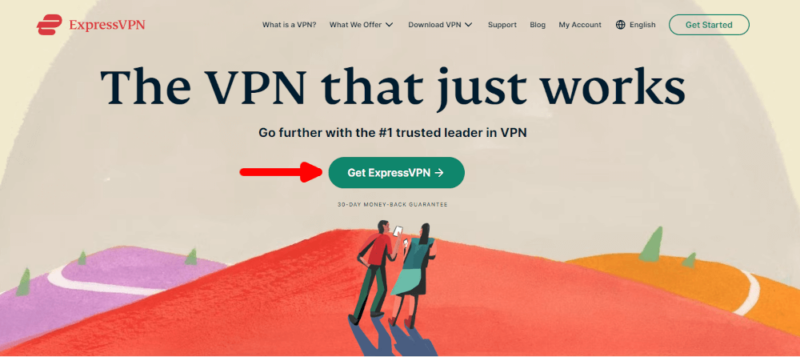

Very Fast

Very Fast

Very Fast
We researched ExpressVPN to see if it could unblock censored social media in Russia, a test it passed with aplomb. Although a bit more expensive than NordVPN or Surfshark, ExpressVPN is just as good at getting around blocks, with convenient metadata obfuscation built automatically into every connection.
ExpressVPN also has servers in 105 countries, including several that offer great performance from Russian population centers. Its best deal is the 28-month offering, which you can try with a 30-day money-back guarantee. See our ExpressVPN review to learn more.
Can I Use a Free VPN to Unblock Facebook in Russia?
Although you can use a free VPN to access Facebook in Russia, such VPNs often come with a number of challenges and constraints. First of all, free VPNs often log customer data and sell it to advertisers. They may even transfer your Internet traffic data to the Russian government itself.
Free VPNs might be riddled with malware and ads. What’s more, you’re likely to have data caps and bandwidth throttling with free VPNs. Keep in mind that the Russian government is aware of VPN use and has systems to stop the practice. This means that many free VPNs are unlikely to work in Russia.
That said, if you must use a free VPN, we recommend PrivadoVPN, as you can see in our free VPN guide. It offers servers in 10 countries, including the U.S., the U.K., France and Germany. It offers 10GB free which could suffice for casual browsing.
Final Thoughts
Living in Russia and not being able to access Facebook is frustrating, especially if you use the social media platform to keep up with friends and family or for business. Fortunately, Putin’s online censorship is not the end of the road; with a VPN, Russian users can access Facebook with ease.
Like China, Russia doesn’t wholeheartedly welcome VPNs, so you need a robust VPN that can get past geoblocks without detection. As you’ve seen in this article, NordVPN is the prime choice for Facebook in Russia. If NordVPN seems interesting to you, you can check it out risk-free and claim a refund within 30 days if you’re not satisfied. Surfshark is a cheaper yet reliable alternative.
Have you tried accessing Facebook in Russia with a VPN? Which VPN did you use, and were you able to get in? Share your experience with us in the comments section. As always, thanks for reading.
FAQ
Russians can use a VPN, although they’re better off using it incognito. Since the escalation of the Russo-Ukrainian war and the banning of social media sites like Facebook and Instagram, Russians are turning to VPNs in droves.
Download and install the VPN of your choice. Next, open the VPN app and connect to a server location outside Russia. You should get a notification or message indicating that you’ve successfully connected. Finally, log in to your Facebook account and enjoy the app.
VPNs are not blocked in Russia, and you can use one to access blocked content. However, it’s worth noting that the Russian government has banned several VPNs following the introduction of the VPN law in 2017 and their refusal to comply with orders to connect to the Federal State Information (FSIS). As a result, some VPNs removed their physical servers from the country.

